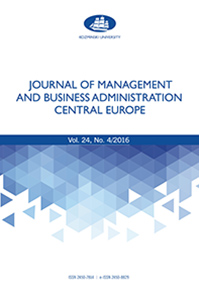State Autonomy in Shaping Tax Policies: Facts
and Myths Based on the Situation in OECD Countries
State Autonomy in Shaping Tax Policies: Facts
and Myths Based on the Situation in OECD Countries
Author(s): Jacek Tomkiewicz, Agnieszka PostułaSubject(s): Business Economy / Management
Published by: Akademia Leona Koźmińskiego
Keywords: tax competition; tax autonomy of states; tax havens; tax policy
Summary/Abstract: Purpose: Capital flows, tax competition, multinational companies and tax havens weakens governments’ ability to lead independent tax policy. This race to the bottom, especially in the case of CIT rate,seems to work. Aim of the text is to show that the governments are not as powerless as it is oftenclaimed. Despite common opinion, nation-states retain a relatively significant autonomy in creatingtheir own fiscal policies, including tax instruments. Size of funds kept in tax havens have not beengrowing for few years and international cooperation of tax authorities is more and more efficientin dealing with the tax fraud.Methodology: The study uses desk research method for theoretical reasoning to verify the researchhypothesis. Moreover, the study seeks answering if the application of EU tax policies determines nationaltax policy. To that end, the authors utilize time series and cause-effect analysis, as well as quantitativeresearch for the systematization of statistical information and regression analysis for the examination of statistical dependencies. Tax competition or the functioning of tax havens naturally limitsthe realization of the fundamental functions of fiscal policies, although the taxation remains oneof the most crucial instruments of macroeconomic and income policy of national authorities.Findings: The most important data on public revenues structure in different OECD countries indicatethat taxation remains one of the most crucial instruments of macroeconomic and income policy ofnational authorities. We also show that impact of FDI on hosting economy is not as positive as it issaid to be. There is no relation between FDI and R&D spending and level of wages in hosting countryis even affected in the negative way by the FDI inflow. Irrespective of the regulatory details introducedat the EU level – the basic factor affecting jets coordination in the field of cooperation between taxservices brings effects both in terms of the current collection of tax liabilities and the creation ofregulations that hinder tax avoidance and under statement assessment.Originality/value: The study focuses on an analysis of tax policy. The view that taxation of international corporations is fraught with difficulties finds support in the undeniable reality of tax competition. Moreover, a large and growing share of profits is transferred to low-tax places. The prospectsfor taxing international companies with positive rates seem unoptimistic. Therefore, it is essentialto check how the national economy is affected by the FDI inflow in OECD countries.
Journal: Central European Management Journal
- Issue Year: 28/2020
- Issue No: 2
- Page Range: 83-97
- Page Count: 15
- Language: English

